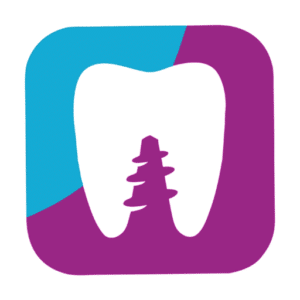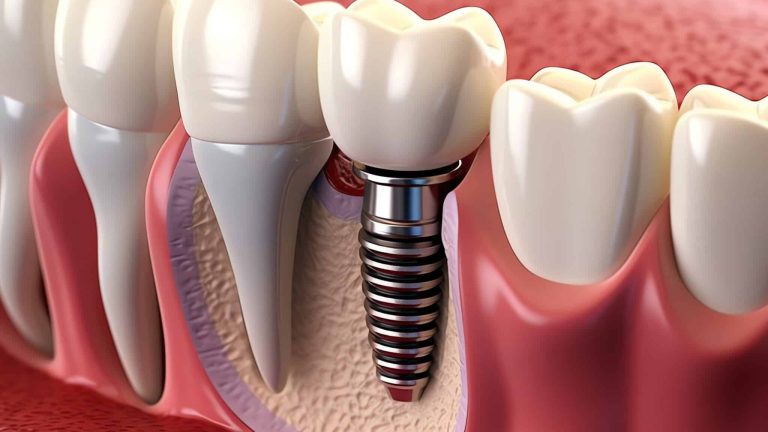Bruxism, commonly known as the habit of grinding or clenching teeth, is a disorder that affects millions of people worldwide. Although it may seem like a simple habit or involuntary reaction, bruxism can cause serious oral and general health problems if not treated in time. Often, those who suffer from it are not even aware, as it primarily occurs during sleep. This disorder can significantly affect dental health, general well-being, and the quality of life of the patient.
In this article, we will explore what bruxism is, its causes, symptoms, how it can affect your dental and general health, and the most effective solutions, such as night guards and relaxation techniques.
What is bruxism?

Bruxism is the medical term used to describe the act of grinding, clenching, or rubbing teeth involuntarily. This behavior can occur during the day (daytime bruxism) or at night (nighttime bruxism), although the most common and hardest to detect is nighttime bruxism, as it happens while the patient is asleep.
Bruxism does not always manifest with grinding sounds; in some cases, it may simply be the act of clenching teeth tightly, which can go unnoticed for a long time until more noticeable symptoms appear.
Types of bruxism
There are two main types of bruxism, classified based on when they occur:
- Nighttime bruxism: Occurs during sleep. This type of bruxism is the hardest to detect, as the patient is unaware of grinding their teeth while sleeping. Often, bed partners are the first to notice the teeth grinding, or dentists detect it during regular exams by observing signs of dental wear.
- Daytime bruxism: Occurs when the patient consciously or unconsciously clenches or grinds their teeth during the day. This type of bruxism may be related to stress, excessive concentration, or anxiety. Although less common than nighttime bruxism, it can also negatively impact teeth and the jaw.
Causes of bruxism
Bruxism does not have a single clear cause, but several factors are known to contribute to its onset. Below, we explore some of the most common causes:
- Stress and anxiety: Emotional stress and anxiety are key factors in the development of bruxism. Many people experiencing prolonged stress or traumatic events may manifest this disorder by clenching or grinding their teeth as an unconscious way to release accumulated tension.
- Poor dental alignment (malocclusion): When teeth do not align correctly (malocclusion), the pressure is distributed unevenly when biting or closing the mouth. This can lead to bruxism as a response to the discomfort caused by poor alignment.
- Sleep disorders: People with sleep disorders, such as insomnia or obstructive sleep apnea, are more likely to develop nighttime bruxism. These disorders disrupt the normal sleep cycle and may trigger involuntary jaw movements.
- Daytime habits or behaviors: Daytime bruxism can be triggered by behaviors like nail-biting, excessive gum chewing, or clenching teeth during activities requiring concentration, such as studying or working on a complex task.
- Genetic factors: Some studies suggest that bruxism may be hereditary. People with family members who suffer from bruxism may have a higher risk of developing it.
- Medications and stimulants: Certain medications, such as antidepressants, and the consumption of stimulants like caffeine, alcohol, or tobacco, can increase the risk of developing bruxism.
Symptoms of bruxism
The symptoms of bruxism can vary from person to person, depending on the severity and duration of the disorder. Many people are unaware they have it until they start noticing signs of dental wear or jaw discomfort. Here are the most common symptoms of bruxism:
- Dental wear: One of the most visible signs of bruxism is tooth wear. Constant grinding can wear down dental enamel, making teeth look flat, chipped, or shorter than normal. This wear can cause tooth sensitivity to cold, heat, or sweet foods.
- Jaw pain (temporomandibular dysfunction – TMD): Bruxism can cause pain in the jaw, especially in the temporomandibular joint (TMJ). This joint connects the jaw to the skull and is responsible for chewing movements. When overloaded by bruxism, it can cause pain when chewing, opening the mouth, or even talking.
- Headaches and earaches: People with bruxism often experience frequent headaches, especially upon waking. These pains are due to the accumulated muscle tension from clenching or grinding teeth. In some cases, bruxism can also cause ear pain due to the proximity of the TMJ to the ear canals.
- Tooth sensitivity: Dental enamel wear can expose the dentin, a more internal and sensitive layer of the tooth. This can lead to increased sensitivity to cold, hot, or sweet foods and drinks.
- Chipped or fractured teeth: Prolonged bruxism can weaken tooth structure, making them chip or fracture more easily. In more severe cases, teeth may require crowns, root canals, or even be replaced with dental implants.
- Sleep disturbances: Nighttime bruxism affects not only the patient’s sleep quality but also that of their partner or roommates, who may be disturbed by the sound of teeth grinding.
How bruxism affects dental health
Untreated bruxism can have a devastating impact on both dental and general health. Below are some of the most common effects:
1. Dental enamel wear
Constant grinding of teeth can wear down the enamel, the outermost protective layer of the teeth. Once enamel is worn, it cannot regenerate, leaving dentin exposed and increasing tooth sensitivity. In the long term, this can lead to problems such as cavities, tooth fractures, and the need for restorative treatments.
2. Temporomandibular joint (TMJ) problems
Bruxism can overload the temporomandibular joint, leading to temporomandibular dysfunction (TMD). This condition causes jaw pain, difficulty opening and closing the mouth, and clicking or popping sounds when moving the jaw. TMD can significantly impact the patient’s quality of life, causing constant discomfort when speaking or eating.
3. Severe dental fractures and damage
Prolonged bruxism can weaken teeth to the point of causing fractures or chipping. Cracked or fractured teeth may require invasive treatments, such as crowns, veneers, or, in more severe cases, extraction and replacement with a dental implant.
4. Gum recession
The constant pressure from bruxism can cause gums to recede, exposing the roots of the teeth. This can lead to increased tooth sensitivity and a higher risk of periodontal disease.
Solutions for bruxism
Treatment for bruxism depends on its underlying cause and the severity of symptoms. Fortunately, there are various solutions available to help patients manage bruxism and prevent further damage to teeth and the jaw.

1. Night guards or splints
Night guards or splints are custom plastic devices worn over the teeth at night. These splints help prevent direct contact between the upper and lower teeth, reducing tooth wear and relieving jaw pressure. While splints do not cure bruxism, they are an effective solution to minimize damage and prevent TMJ pain.
2. Relaxation and stress management techniques
Since stress and anxiety are common causes of bruxism, relaxation techniques can be very helpful in controlling this disorder. Activities like yoga, meditation, deep breathing, and cognitive behavioral therapy (CBT) can help reduce emotional and physical tension, which in turn decreases teeth grinding.
3. Physical therapy
Physical therapy can be beneficial for relieving muscle pain and improving temporomandibular joint function. Physical therapists can teach jaw stretching and strengthening exercises, as well as relaxation techniques to reduce muscle tension.
4. Medications
In some cases, medications can be useful for reducing pain or tension associated with bruxism. Muscle relaxants, pain relievers, or anti-inflammatory drugs may be prescribed to relieve jaw and facial muscle pain. However, medications are not a long-term solution and should be used with caution.
5. Regular dental check-ups
It is crucial for people with bruxism to visit their dentist regularly to detect early signs of dental wear or damage. Early diagnosis allows the dentist to implement preventive measures and treatments to avoid more serious complications.
Conclusion
Bruxism is a disorder that can have serious repercussions on dental health and general well-being if not adequately treated. Although many people are unaware they have it, symptoms such as dental wear, jaw pain, or headaches indicate its presence. Fortunately, effective solutions such as night guards, relaxation techniques, and personalized dental treatments can prevent further damage and improve the patient’s quality of life.
At Clínicas La Guardia, we are committed to helping you identify and treat bruxism, offering customized solutions that fit your needs. If you suspect you may be suffering from bruxism or would like more information about available treatments, don’t hesitate to contact us. We are here to help you protect your smile and well-being!




